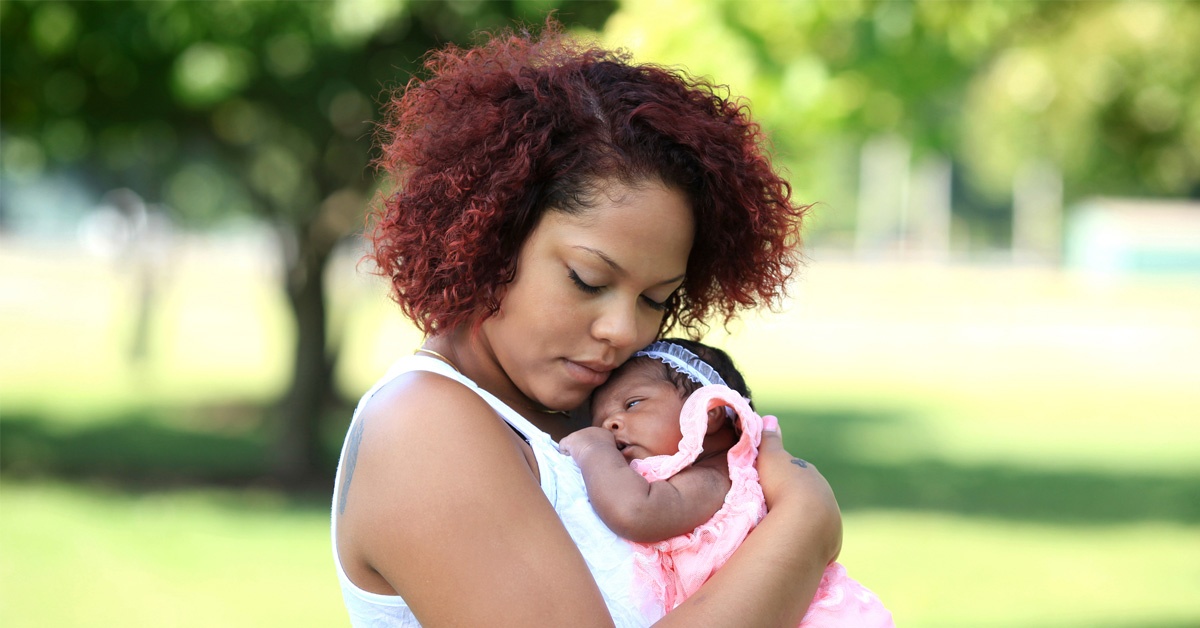
According to the New York Times, the day after tennis superstar Serena Williams gave birth, she had trouble breathing. Williams knew her symptom was a sign of a pulmonary embolism, which had almost proved fatal to her in 2011. She told a nurse her concerns and requested a CT scan and a blood thinner. The nurse dismissed her request. After a doctor conducted an ultrasound on her legs that showed nothing, Williams got a CT scan that revealed small clots in her lungs.
Williams’ story is not unique, and similar situations can happen to women of color despite their fame, economic status, or education. Although Williams survived, in 2019, 754 women died from pregnancy or delivery complications in the U.S. The ratio of 20.1 maternal deaths per 100,000 live births in our country is more than twice that of our high-income peers. What’s more, Black and Indigenous women are two to three times more likely to die from pregnancy-related causes as white mothers, according to the Centers for Disease Control and Prevention (CDC), and their infants are three times more likely to die.
Prenatal and postnatal care are vital for the best health outcomes for parent and baby, but due to racism and implicit bias embedded in the healthcare system, not everyone gets the same quality of care.
“Many birthing people of color, particularly those who are Black and Indigenous, report high levels of mistrust and experiencing disrespect and a lack of autonomy when receiving prenatal care,” says Associate Professor Rachel Hardeman, University of Minnesota School of Public Health Blue Cross Endowed Professor of Health and Racial Equity. “This can cause particular harm during the first trimester of pregnancy. This is a critical period for a baby’s development, but barriers to health care make it harder for their mothers to get the care they need. If healthcare systems can focus on structural issues, such as cost, physical accessibility, cultural centeredness, and anti-bias training, they can help birthing people access prenatal care and get that care from providers who treat them with dignity and respect.”
A Fundamental Cause
Hardeman sees the inequities in maternal and infant care as largely the results of structural racism. “Structural racism refers to the totality of ways in which societies foster racial discrimination through mutually reinforcing systems,” says Hardeman. “It is a fundamental cause of racial health inequities, so to achieve health equity on a national level, we need to dismantle and reconstruct systems built on structural racism.”
One year ago, Hardeman founded the Center for Antiracism Research for Health Equity (CARHE) at the University of Minnesota School of Public Health with a $5 million initial gift from Blue Cross and Blue Shield of Minnesota. Hardeman is the center’s director and she and her team see confronting racism and undoing its effect on health equity as the principal focus of their work.
“Clinicians must master learning the ways in which structural racism affects health,” says Hardeman. “I believe that medical schools and training programs should equip every clinician — in every role — to address racism. And licensing, accreditation, and qualifying procedures should test this knowledge as an essential professional competency. Acknowledging and confronting racism in healthcare is essential for the dignity of Black and Indigenous moms and babies.”
In the U.S., this competency imperative is gaining traction and there are recent reforms dedicated to addressing racial health inequities in the healthcare system.
California and Minnesota Break New Ground
In California, Black mothers and infants have the highest rates of death of all races and ethnicities. In October 2019, state lawmakers passed the California Dignity in Pregnancy and Childbirth Act with the aim of reducing maternal and infant mortality rates and acknowledging “the implicit bias and racial disparities in maternal mortality rates.” The legislation provides funding for hospitals and alternative birthing centers to receive mandated, evidence-based implicit bias training.
“The California Dignity in Pregnancy and Childbirth Act is an important step forward because it addresses racism, the core cause of inequities,” says Hardeman. “As an investment and as reform, California’s work should serve as a model for the rest of the U.S.”
Hardeman served as project director in the development of the training funded by the California legislation. The resulting course, called the Dignity in Pregnancy and Childbirth Project, includes one-hour of e-learning modules, facilitation guides for staff, toolkits for leadership teams, and activities to deepen awareness of the effect of structural racism on pregnancy and birth. Hardeman’s experience with Roots Community Birth Center, the first independent and Black-owned birthing and reproductive center in Minnesota, inspired the curriculum. The research that Hardeman and her colleagues conducted in partnership with Roots found that putting the client’s culture at the center of care, forming strong relationships, incorporating midwives and doulas, and empowering birthing people can reduce tragic disparities.
“Roots has a culturally and relationship-centered model that incorporates midwifery and doula care,” says Keelia Silvis, CARHE manager of communications, education, and engagement. “They talk about holistic aspects of care, wellness, and health. After birth, they have continual checkups with the parent and the baby, so they can have a better chance of catching postpartum depression, postpartum diabetes, or any kind of issues.”
While the California Dignity in Pregnancy and Childbirth Act was the first legislation of its kind in the nation, in February 2021, Minnesota passed a bill with the same name and the same goals: the Dignity in Pregnancy and Childbirth Act (MN HF3093). In Minnesota, Black women are 2.5 times more likely to die during pregnancy or within a year after giving birth than their white counterparts; Indigenous women are four times more likely to die.
“I was thrilled when our state passed similar legislation to California’s,” says Hardeman. “The Minnesota legislation requires hospitals to offer antiracism and implicit bias training to their perinatal care staff. This is an important acknowledgment by our state leaders that half of all maternal deaths are preventable. Everyone who works with birthing people has a responsibility to learn how their beliefs and actions can influence whether or not a new mother goes home with her baby. We are excited to adapt the California course to fit Minnesota’s context by centering community voices and local data.”
Hope Ahead
While the statistics for maternal and infant health are startlingly grim, hope is on the horizon. The curriculum for California’s Dignity in Pregnancy and Childbirth Project can be replicated and tailored to individual states across the nation. In fact, anyone can register and complete the course for free.
“We physically take on the societal conditions of our lives, which makes racism bad for the body and can harm birthing people and their babies,” says Hardeman. “Luckily, our research has shown that providing racially concordant and relationship-centered care can overcome the disadvantages of racism and dramatically reduce adverse birth outcomes.”
For Hardeman, the Dignity in Pregnancy and Childbirth Project and her work at CARHE are deeply personal. Hardeman grew up in Minnesota and saw firsthand how racial inequities affected her community in a multitude of ways. She wants to rectify these long-standing issues. On a national level, Roots Community Birth Center and the Dignity in Pregnancy and Childbirth Project are prototypes other states can emulate to lower the dramatically high rates of death and complications for Black birthing people and Black babies. Ultimately, the goal is to combat racial inequities in maternal and infant health care for all people of color.
Read more about Rachel Hardeman’s work:

